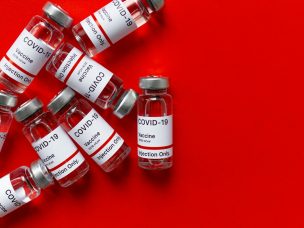In 2019 there was much buzz and excitement surrounding sickle cell disease and the upcoming breakthroughs in store for patients. With the onset of Covid-19 came a shift in medical practices leaving healthcare providers and patients alike wondering how their treatments and new therapies would be affected.
MDNewsline sat down with Dr. Cheryl Mensah, a Hematologist/Oncologist from Weill Cornell Medicine to talk about the effects of Covid-19 on sickle cell patients and how HCPs can continue to arm their patients for success.
Cheryl Mensah, MD is an Assistant Professor of Medicine at Weil Cornell School of Medicine and Assistant Attending Physician at New York Presbyterian Hospital. Dr. Mensah is part of the Weil Cornell Hematology and Medical Oncology Non-Malignant Hematology Program. Dr. Mensah cares for patients with non-malignant hematologic diseases with a special interest in sickle cell disease and thalassemia.
She is currently a member of the American Society of Hematology, American Federation of Medical Research, and the American College of Physicians-Internal Medicine.
Here’s what she had to say:
MDNewsline: How can healthcare professionals better support patients and families dealing with sickle cell?
Dr. Cheryl Mensah: Healthcare providers should use empathy, research, and patience to support patients and families with sickle cell disease. Empathy is important for all patients, but especially patients with inherited disorders. Over their lifetime, these patients develop strong opinions regarding their health and the healthcare profession. It’s important to listen to patients and remain empathetic. However, health care providers should stay up to date on research and management of this disease. Medicine is constantly changing and evolving and patients are not always aware of newer treatments. Healthcare providers should keep patients informed and use their medical knowledge to make clinical decisions.
MDNewsline: How do HCPs know whether and how much pain medication to provide for patients? and can pain med addiction be avoided?
Dr. Cheryl Mensah: Unfortunately, there are no objective laboratory tests to diagnose pain. Providers should ask patients to describe their pain, their current pain regimens, and use collateral information from online databases like I-stop to guide their decision making. All health care providers should continually re-assess patient pain medication and look for opportunities to adjust. Pain medication addiction can be avoided, but it requires re-assessment. It would be useful if pain management professionals were open to managing patients with chronic pain conditions. At your institution
MDNewsline: There have been a number of new sickle cell treatments in the past year or so. How are they impacting patient care and is there more hope now for patients?
Dr. Cheryl Mensah: The newer medications have different functions and can be combined with hydroxyurea. In addition, the newer medications were developed specifically for sickle cell disease. Voxelotor raises hemoglobin and reduces transfusion requirements. This is helpful especially with the recent decrease in blood bank donations. Crizanlizumab has been shown to decrease hospitalizations and pain crisis. This is promising because vaso-occlusive pain crisis is the number one cause of hospitalizations.
MDNewsline: How is Covid-19 currently affecting Sickle Cell patients?
Dr. Cheryl Mensah: Due to Covid-19, there were limited office visits and infusion center visits for intravenous medications. After March, it was more important for patients to limit ED visits and hospitalizations to decrease exposure.
MDNewsline: With hospitals limiting non-COVID patient interactions, what are some tips physicians can share with their patients for managing pain crises at home?
Dr. Cheryl Mensah: Patients should stay hydrated, take warm baths, use heat packs, and take anti-inflammatory medications. These measures should be used in addition to narcotics to manage their pain crisis. Self-care is important and patients should use every opportunity to practice self-care. These behaviors can reduce patient reliance on narcotics, emergency rooms, and hospitals.
MDNewsline: Before COVID-19 there was a boom in the industry for SCD treatment research and release. How has COVID affected the timelines of these releases?
Dr. Cheryl Mensah: Many centers have had less enrollment in research studies due to COVID-19. This will likely delay timelines at least 3-4 months. However, I’m hopeful that patients, physicians, and scientists are eager to get back to normal.










